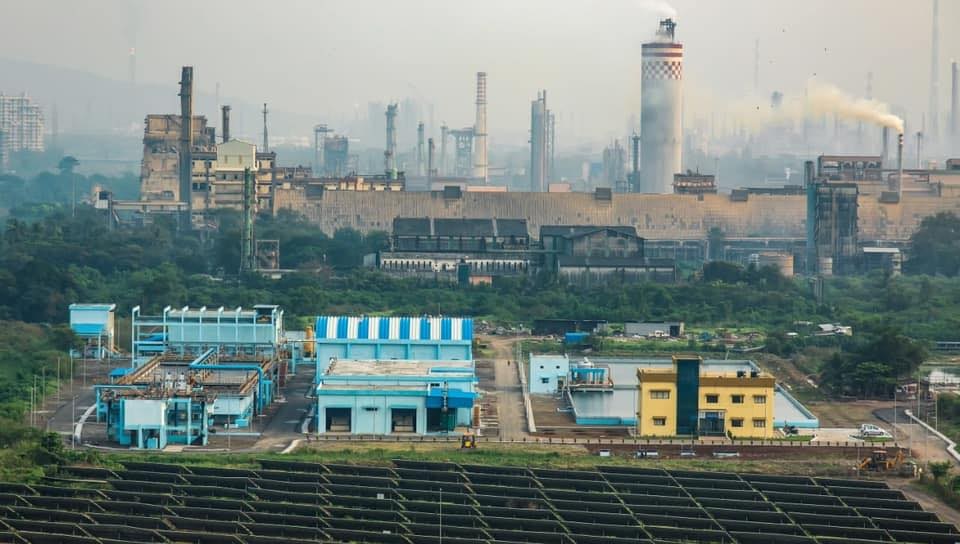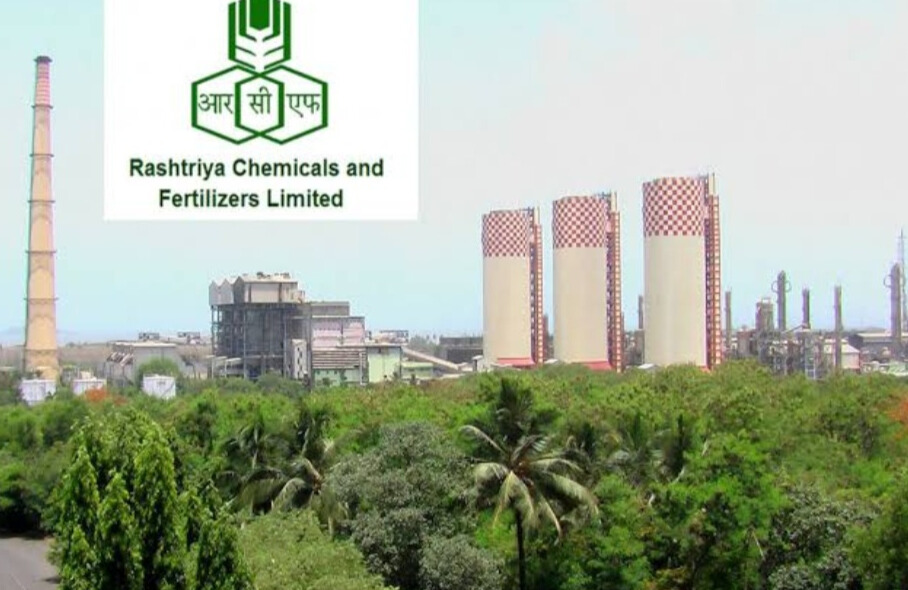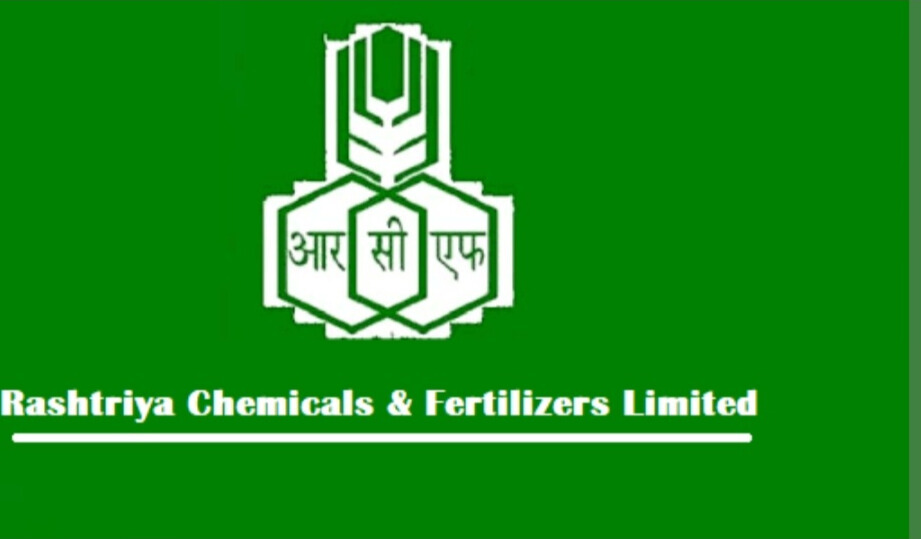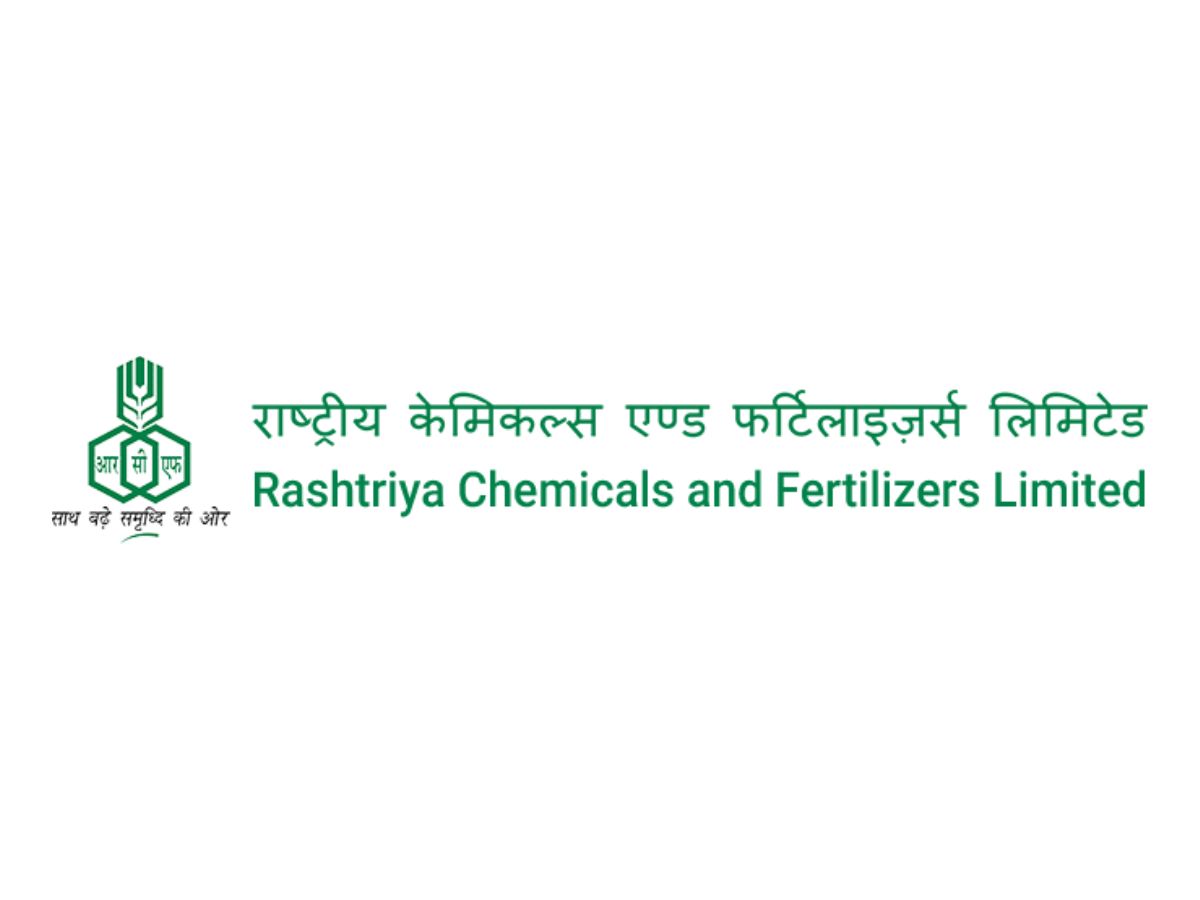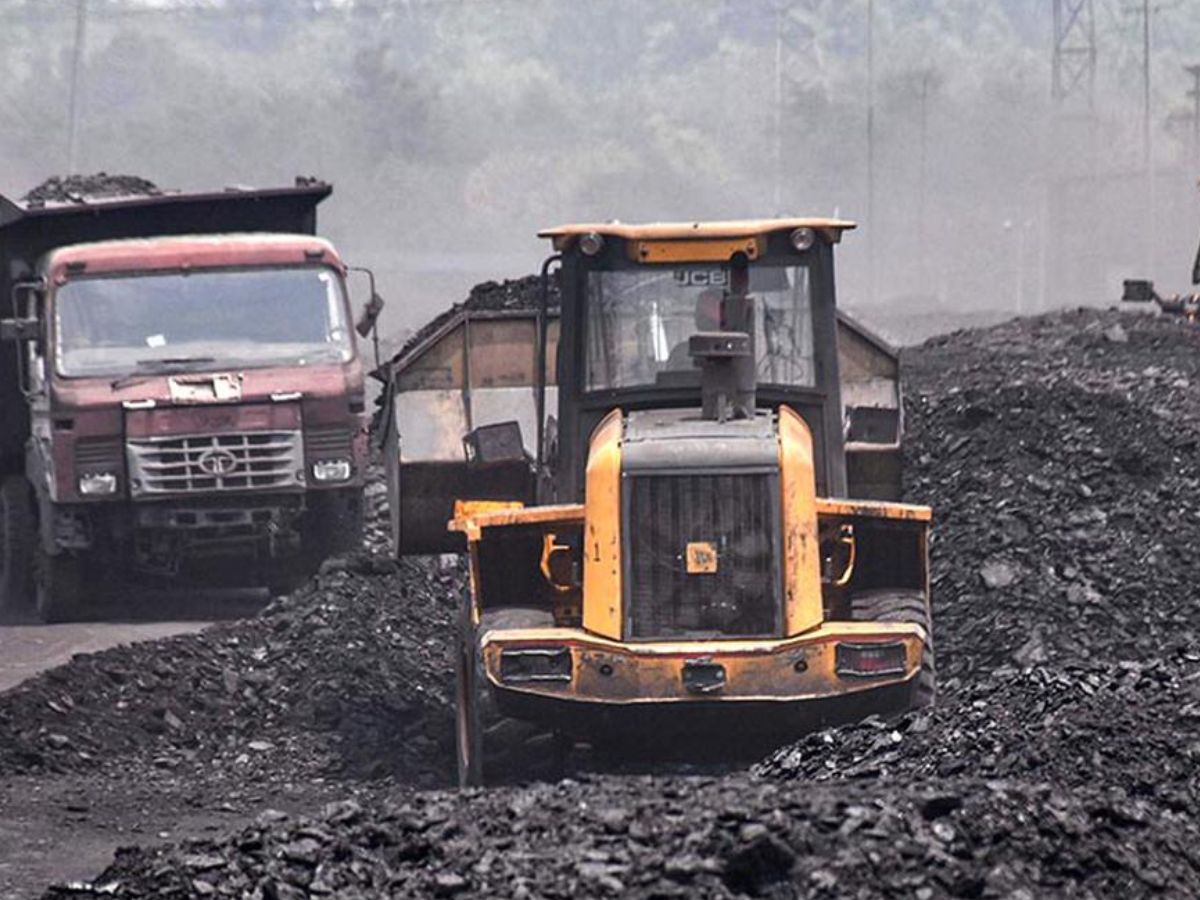Rashtriya Chemicals and Fertilizers Limited (a Government of India undertaking), was established in 1978 consequent to the reorganisation of Fertilizer Corporation of India. RCF manufactures Urea and Complex fertilizers (NPK) along with a wide range of Industrial Chemicals. It is 4th largest Urea manufacturer in India after IFFCO, NFL and KRIBHCO.The Government of India (through the President of India) holds 75% of the share capital of the Company as of December 2018.
Rashtriya Chemicals & Fertilizers Limited (RCF), a “Mini-Ratna”, is a leading fertilizers and chemicals manufacturing company with about 75% of its equity held by the Government of India. It has two operating units, one at Trombay in Mumbai and the other at Thal, Raigad district, about 100 KM from Mumbai.
RCF manufactures Urea, Complex Fertilizers, Bio-fertilizers, Micro-nutrients, 100 per cent water soluble fertilizers, soil conditioners and a wide range of Industrial Chemicals. It produces around 25.00 Lakh MT Urea, 4.75 Lakh MT Complex fertilizers and 4.5 Lakh MT of Industrial Chemicals every year. The company is a household name in rural India with brands “Ujjwala” (Urea) and “Suphala” (Complex Fertilizers) which carry a high brand equity. RCF has countrywide marketing network in all major states. Besides fertilizer products, RCF also produces a large number of industrial chemicals that are important for the manufacture of dyes, solvents, leather, pharmaceuticals and a host of other industrial products.
The “Make in India” mission was launched by the Hon’ble Prime Minister, Shri Narendra Modi in September 2014 with an objective to give the Indian economy sustainability and global recognition. The government is committed to transforming India into a global manufacturing hub, while ensuring that manufactured goods have ‘zero defect’ and ‘zero effect’ on the environment.
In consonance with the PM’s mission and Vision 2022, RCF endeavors to be one of the main driving forces behind India’s sustainable agriculture. RCF is one of the earliest units set up in the country with a vision of growth in fertilizer production for food security. The company was the first in the country to produce complex fertilizer which was introduced in the market in 1967 under the brand name “Suphala”. RCF took the lead in the country in setting up mega size fertilizer complex at Thal which was commissioned in the year 1985 and after that many more domestic mega plants followed suit. The company also made significant contribution in the great “Green Revolution” of the nation. RCF has also pioneered the manufacture of basic chemicals such as Methanol, Ammonia, Ammonium Nitrate, Sodium Nitrate, Sodium Nitrite, Ammonium Bicarbonate, Methyl amines, Dimethyl Formamide, Dimethyl acetamide, Formic Acid, Argon in India. RCF has been successfully operating a Sewage Treatment Plant (STP) of 22.75 MLD (Million Liters per Day) sewage capacity at Trombay unit since January 2000. RCF and BPCL have entered into MOU for new STP Project at RCF- Trombay. RCF shall supply around 40% of the treated water to BPCL. In its bid towards India’s vision of achieving ecologically sustainable growth, RCF has already forayed into solar power generation. RCF has set up a 2 MWp ground mounted Photovoltaic Solar power plant within the factory premises and an aggregate capacity of 1.29 MWp solar rooftop facilities.
At present, there is a deficit of 7-8 MMTPA of indigenously produced urea in meeting India’s total requirement which is being met through imports. In order to augment the domestic urea capacity to fill this gap and achieve self-sufficiency in line with the ‘Make in India’ mission. RCF in association with GAIL, CIL and FCIL has taken up revival of FCIL’s unit at Talcher based on Clean Coal Technology. The project entails setting up Urea plant of 1.27 million MT per annum capacity. In order to utilize country's huge coal reserves, Talcher Fertilizers will be a game changer for India in terms of opening a new avenue in coal gasification and shall reduce dependency on Natural Gas for Urea manufacturing. Department of Fertilizers (DoF) has nominated RCF for 52% equity in Namrup IV project in BVFCL, along with Oil India Ltd., Govt. of Assam and BVFCL holding 26%, 11% and 11% equity respectively in joint venture for setting up of Namrup unit of Brahmaputra Valley Fertilizer Corporation Limited. The proposed project entails setting up a Urea plant with an annual capacity of 1.27 Million MT. Apart from the proposed fertilizer projects in India, RCF is also looking for opportunities, for setting up Joint Venture Urea Projects in countries like Iran and Gabon. In Algeria RCF, along with NFL, GSFC and NMDC is exploring possibility of Development and beneficiation of Rock mines in Algeria; and Setting up Phosphoric acid/ DAP plant with buy back arrangement.
“Make in India” also lays emphasis on the principle that sustainability should not be confined to the continuity of economic progress alone, but should imply a resolve that the country would note compromise on its commitment towards environment protection.
Since inception, RCF has successfully and safely operated two dozen chemical and fertilizer plants for the past five decades at Trombay. The company has operated plants at Thal for last thirty years and maintained the quality of environment. This itself has been a huge challenge and demonstrates company’s commitment towards environment and concern about the neighborhood. RCF has spent more than Rs.400 Crore over the years in various pollution abatement and environment improvement schemes.
RCF has always striven for upkeep of the plants through modernizing and upgrading technology. Revamping and de-bottlenecking is the secret that has kept the company thriving for five decades. This has facilitated plants to sustain operations and meet technological challenges of improved efficiency, lower energy consumption and meet the environment norms. It has also resulted in company achieving the highest standards of safety and product quality. The company is maintaining ISO 14001 accreditation for environment since the last seventeen years. Both the manufacturing units are accredited with ISO 9001 for quality, OHSAS 18001 for Occupational Health and Safety and ISO 50001: 2011 for Energy Management System.
Agriculture is the mainstay of the Indian economy, being the source of employment for more than 50% of the population. The connection between agriculture and ‘Make in India’, ‘Vision 2022’ will promote economic security of farmers. The objectives of which can be enunciated as:
a) Improved professionalism in agri-business
b) Increased private investments in agriculture support activities like irrigation projects, research and development, training etc.
c) Improved agri-metrics like yield per hectare etc. and
d) Improved agri-produce marketing and sales.
